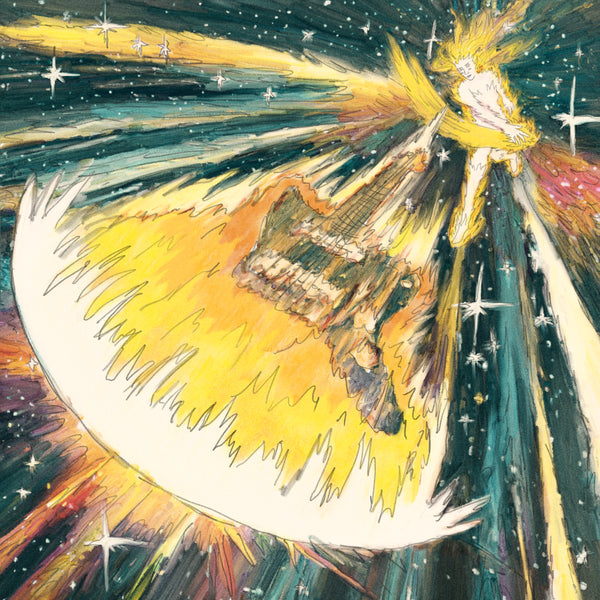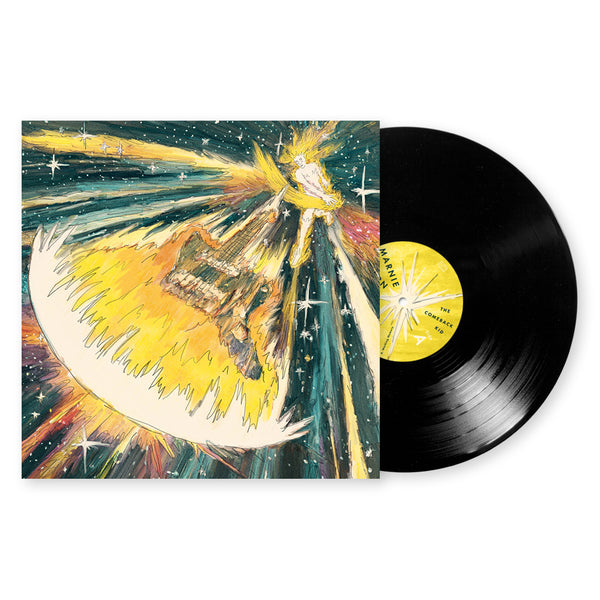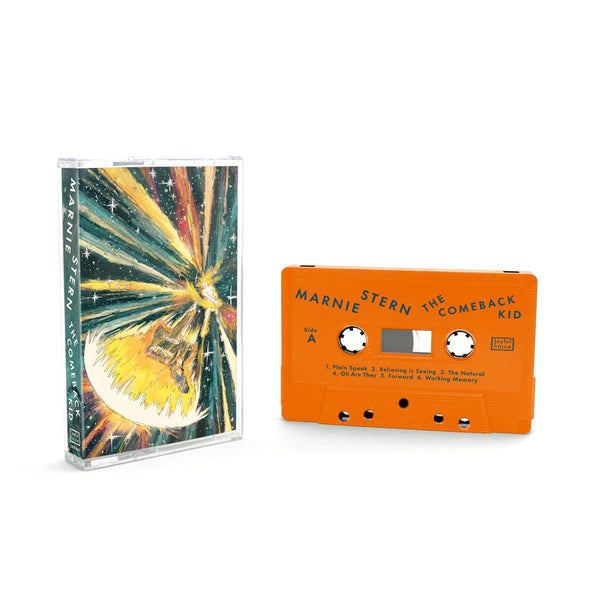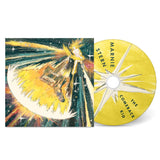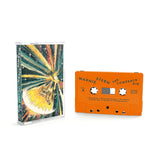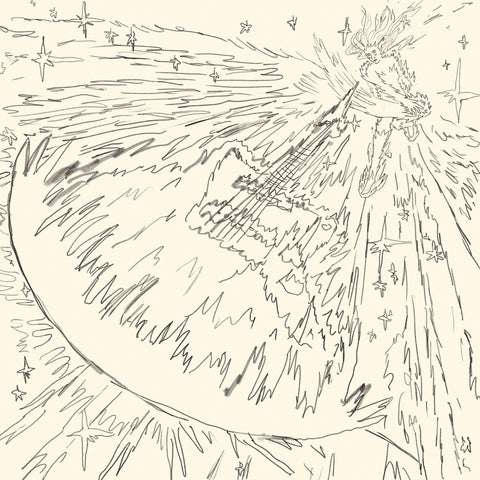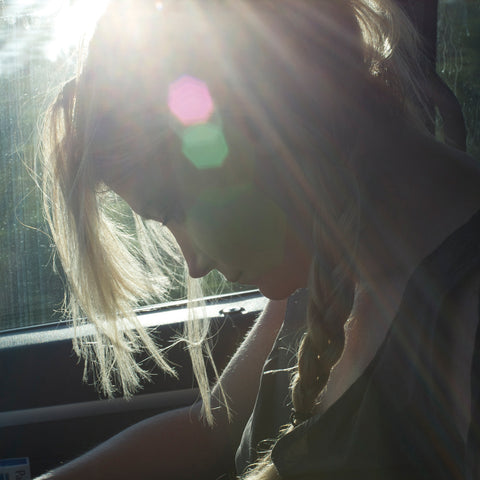$ 9.00 USD
SOLD OUT
- Plain Speak
- Believing Is Seeing
- The Natural
- Oh Are They
- Forward
- Working Memory
- Il Girotondo Della Note
- Til It's Over
- Nested
- Earth Eater
- Get It Good
- One And The Same
Credits:
music and lyrics by Marnie Stern
mixed and mastered by Mikey Young
It’s been a decade since we last heard from Marnie Stern, and in her absence the indie music world has become overrun with an army of anti-Marnies i.e. corporate clones making banal playlist rock lacking in the whimsy, creativity, and virtuosity that made Stern’s take on rock music such a singular sound in the late 2000s. But when Stern’s guitar bursts in like a shower of stardust on The Comeback Kid, her long-awaited follow-up to 2013’s The Chronicles of Marnia, it’s like no time has passed. Marnie Stern is back—and not a moment too soon.
Where has Stern been? She cops to having been lulled by the gentle rhythm of a nine-to-five job as the guitarist in the band on The Late Show with Seth Meyers; she’s also been raising two kids. But when it came time to start working on a new record, the ease with which she picked up right where she left off was surprising even to her. “I expected that all those years of playing other kinds of stuff would have influenced me—and it didn't at all! I was fully back where I was before,” Stern says.
Even so, The Comeback Kid is no nostalgia trip: it’s a statement of intent, as Stern makes clear on anthemic opening track “Plain Speak”. “I can’t keep on moving backwards,” she repeats, her fingers furiously tapping the fretboard as the song joyfully zips forward like a rocket hitting warp speed. She follows that up with “Believing is Seeing,” a song about overcoming alienation with nose-to-the-grindstone creative effort. “The sound is hard to hear right/ You can’t take it,” she sings. “What if I add this! And this! And this!” punctuating each “this” with another layer of sound, gleefully rifling through her bag of musical tracks and trying each one on for size, building the song up as she goes along—it’s fun and colorful and imaginative; it’s also weird. But being unafraid to embrace her oddball impulses has always been part of Stern’s musical DNA, and something she missed in her years of being a player for hire. “It was so great to be able to start being myself again and when I would think, ‘Oh, is that too, too weird?’ I'd remember I'm allowed to do whatever I want! This is mine. It's me,” says Stern of writing songs for The Comeback Kid. “I'm trying to go against the grain of this bullshit that when you get older, you lose your sense of taste. I want to empower people to not be so homogenous and go against the grain a little bit.”
Stern empowered herself on The Comeback Kid by continually pushing outside of her comfort zone, which included trying not to lean too heavily on the tapping technique that launched a thousand Eddie Van Halen comparisons—”I think I was relying on it as a crutch a little bit,” she admits. To that end, some of her favorite tracks on The Comeback Kid are the ones that challenged her the most, such as “Til It’s Over,” as straight-ahead an “alternative rock” song as Stern has ever made (“Prettier songs are always harder for me to do.''), or the cover of Ennio Morricone’s “Il Girotondo Della Note,” where Stern pushes her vocals to uncomfortable heights in order to mimic the original’s choral arrangements. “I’m all about individuality and trying to be different and sticking out instead of blending in and taking risks with yourself; that's what I try and do in my music because if it embarrasses me, then I force myself to keep going with it,” says Stern.
That sense of taking joy in your individuality is all over The Comeback Kid, which really is what the title says: the story of an artist coming back to the world with the hard-earned wisdom that making music which truly reflects who you are in all your brightness, boldness, and (yes) weirdness, is always something worth celebrating, and maybe the key to happiness in the end. “This record is about reassuring yourself that happiness is not about what kind of things you have or how many things you have or what you don’t have—it’s about all the good things you do,” says Stern.
- Mariana Timony


